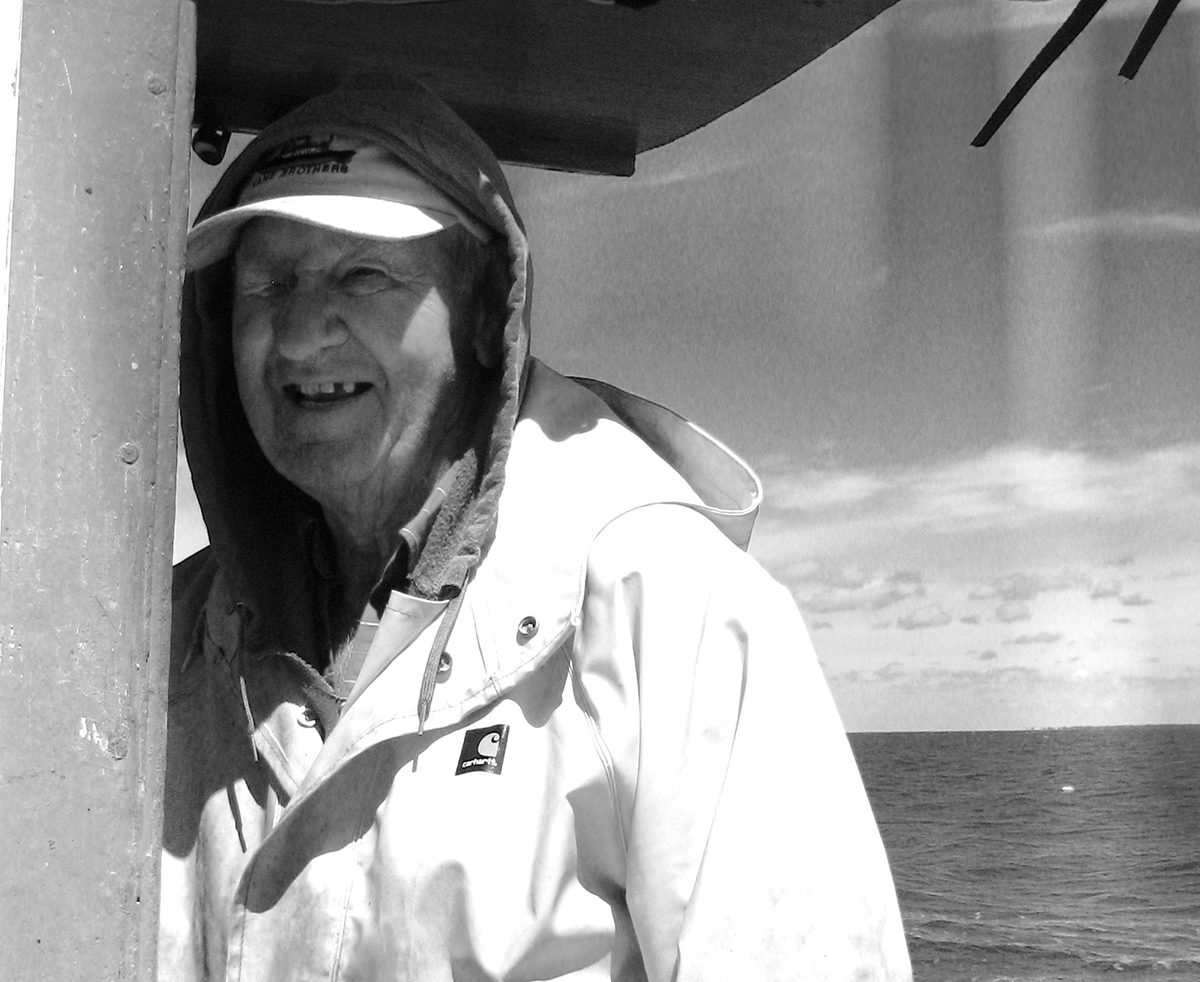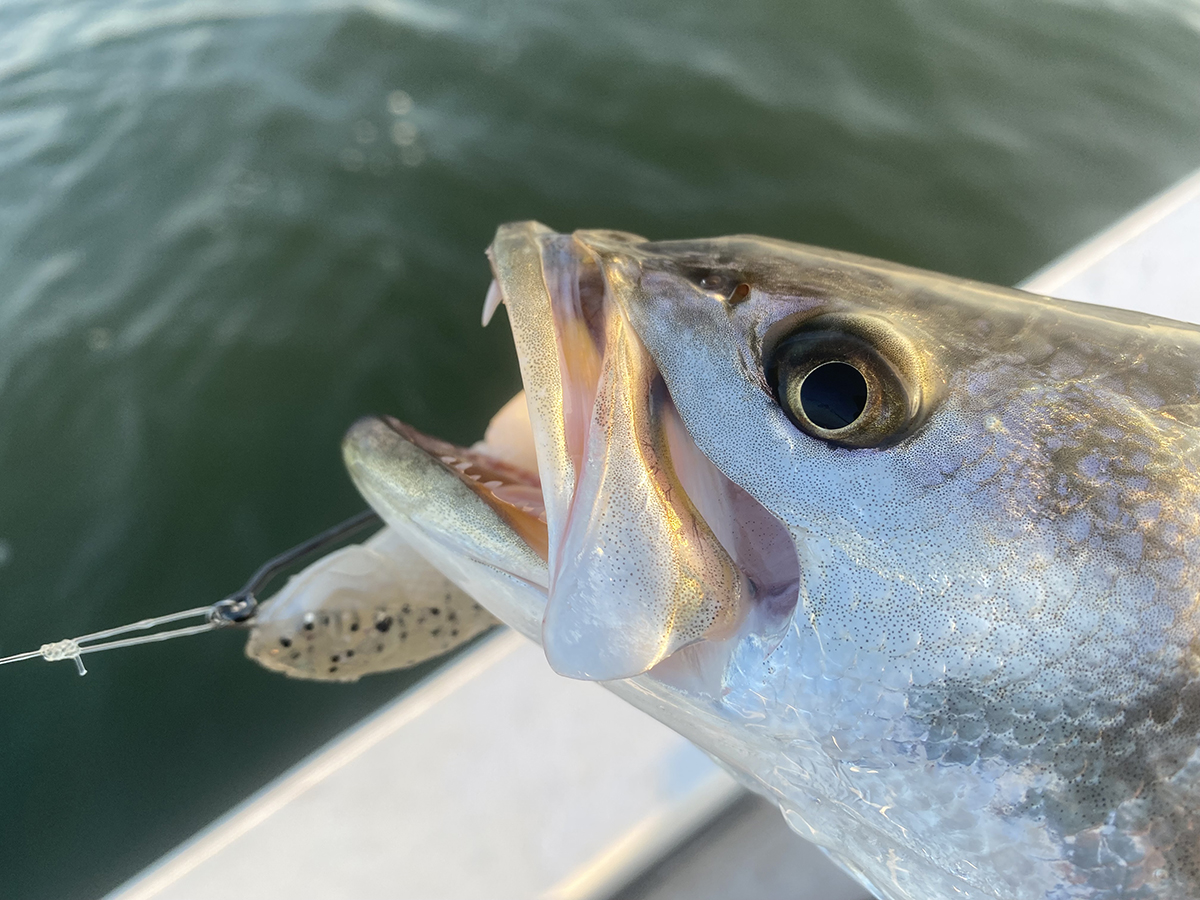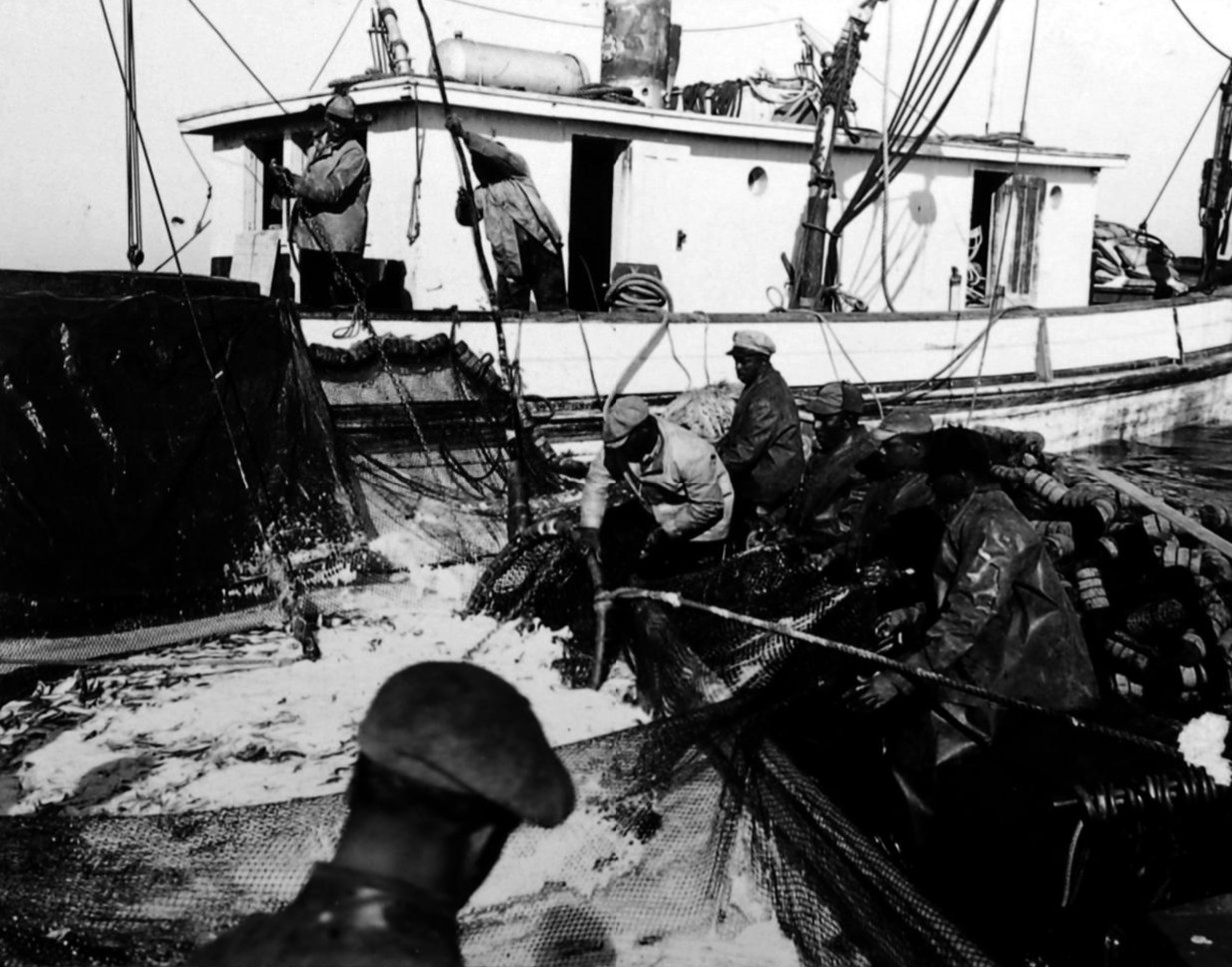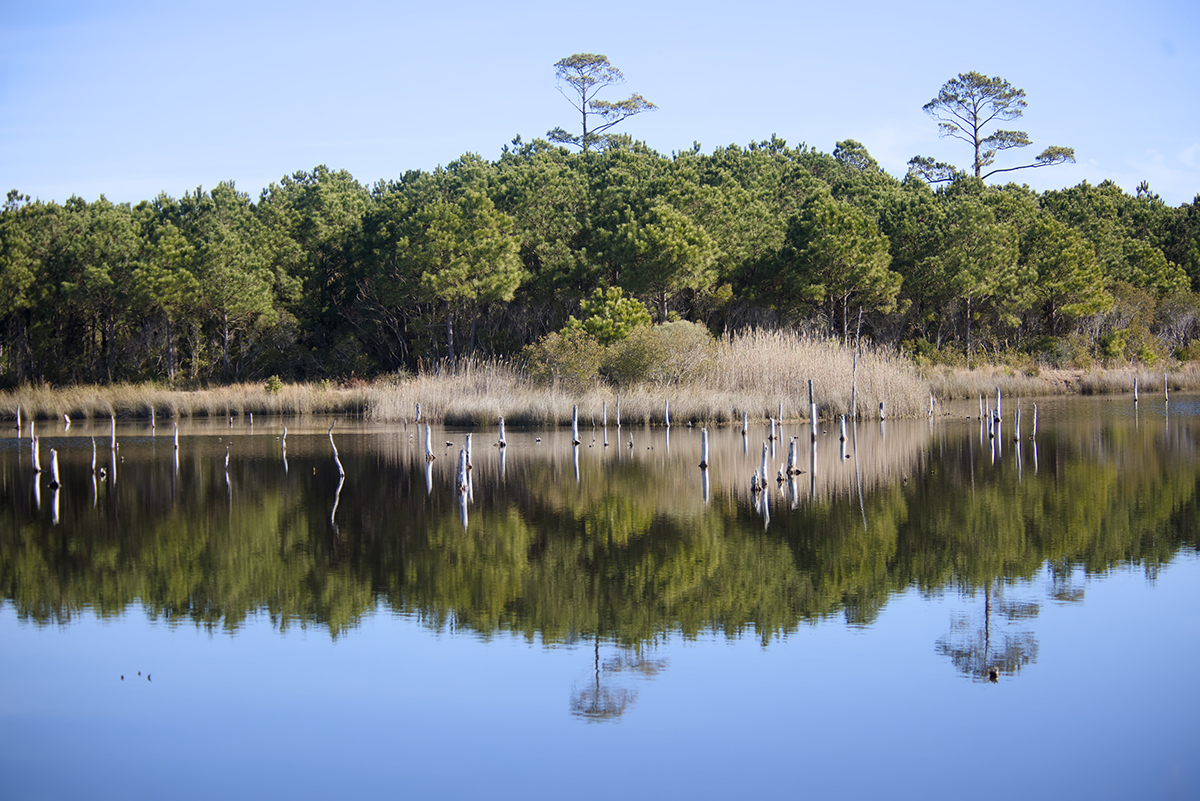
KILL DEVIL HILLS — Murray Bridges, the visionary Outer Banks fisherman who remade tiny Colington Island into a behemoth of the soft-shell crab industry in North Carolina, died Tuesday morning after being infected by the Vibrio bacteria two days earlier while tending his crab shedders.
Bridges, who owned and operated Endurance Seafood Co. off Colington Road since 1976, was 89.
Supporter Spotlight
“One week ago, he was setting peeler pots and fishing them,” Willy Phillips, a close friend and a fellow crabber, told Coastal Review Wednesday. “So, he fished to the end. That was Murray — his work ethic was incredible.”
A native of Wanchese, Bridges was instrumental in establishing soft-shell crab as a profitable shellfish product in North Carolina, while also insisting on the highest standards.
“There’s people that come along and transform the industry, and he was one of them,” Phillips said. “He was really kindhearted and hardworking. His example should be a guiding star because of the dedication to his work, his family and his industry.”
Bridges had woken up at about 2 a.m. Aug. 20 with a scratch that he had assumed was from a spider bite, his granddaughter Heather Bridges told Coastal Review by phone.
At about 3:30 a.m., he went out to check the crab shedders, she said, which were filled with water pumped from the nearby sound, and his family noticed the scratch on his arm.
Supporter Spotlight
“It was a little swollen place on his wrist,” Bridges said. “We didn’t think much of it.”
But by noon, when his daughter checked on him, he was delirious, and she immediately took him to the health clinic, Bridges said. He was then taken to Outer Banks Hospital and quickly transferred to Norfolk General Hospital. But by evening Aug. 21, the infection had spread to his elbow, then to his shoulder. It was too much for his heart, and Murray Bridges died the next morning.
“It really was amazing how quickly it progressed,” his granddaughter said.
The bacteria, Vibrio vulnificus, is naturally occurring in warm, brackish waters, but people with liver disease, diabetes, or compromised immune systems, or who are older than age 60 or men over age 40, are more at risk of getting infected. It is known as one of the fastest-growing bacteria in the world.
Bridges’ case is the second confirmed Vibrio death in Dare County since July.
According to the North Carolina Department of Health and Human Services, prior to Bridges, a total of three people in the state had died of Vibrio infections in July. Dare County health officials reported a total of nine confirmed and two probable cases of Vibrio in Dare County since 2018, not including Bridges. Of them, three cases were reported in July, one of them a confirmed fatality of a Nags Head man who was cut by a crab pot in Buzzard’s Bay in Colington.
Heather Bridges said that the doctors had told the family that by all indications, her grandfather had a Vibrio infection, but she said she was not aware whether it had been confirmed.
Phillips, 73, former owner of Full Circle Crab Co. in Columbia, in Tyrrell County, said that Bridges was proud of his service in his younger years as a merchant marine and then as a chief engineer on tugboats, when he “sailed,” as he called it, before he moved back home to his native Wanchese and started commercial fishing.
But his major contribution was how he built the lucrative soft-crab industry from the ground up in Colington, seizing on the opportunity after learning about peelers from a North Carolina Sea Grant program, and seeing how Virginia and Maryland fishermen were making money with soft-shell crabs.
Then through dint of his energy, innovative intelligence, and strict quality control, Bridges and Endurance Seafood Co. had birthed an economically viable industry during the traditional fishing off-season on the Outer Banks.
“The mark of a good fisherman is to be aware, to be able to move when you get that gut feeling that there’s something afoot,” Phillips said.
At the time, there was a small soft-shell crab industry on Core Sound, but on the Outer Banks, the peelers were only sold to a few local eateries. But Bridges recognized an untapped source of income, and eventually developed the techniques to produce a high-quality product, scale up the volume and create demand for it at the largest fish market in the U.S., earning a reputation along the way as a sharp businessman.
“The soft-shell crab industry is relatively new, within the last generation,” Phillips said. “Murray was able to hook into the markets in New York. He began shipping to New York as soon as he had the volume to do it.”
Buyers would show up every year at Ensurance Seafood, and start wrangling with Murray, and later also with his daughter Kristina, better known as Kissy. Whether or not Murray Bridge’s folksy Outer Banks brogue caught them off guard, New York buyers soon learned that Bridges was a steely, albeit honest, negotiator.
“You didn’t cross him,” Phillips said. “He had a long memory.”
But dealers appreciated that Bridges could be counted on to provide a quality product.
“It was still the case that they’d come down and pay homage to Murray,” Phillips said.
Initially, Bridges would ship live crabs packed in seaweed gathered locally, Phillips said. But he took the time to learn from other fishermen in Virginia, and, through trial and error, how to pack, how to set up shedders, how to sort the crabs by size and sex.
Soft-shell operations are intensive, seasonal operations that require around-the-clock work when the crabs start molting their shells. But done well, they can be quite profitable. Also, when there’s a bumper season, peeler crabs can be fresh frozen and shipped later.
“The crabbers really jumped on it because it provided an additional source of income early in the year,” Phillips said. Even such a short season could produce 25% or so of a fisherman’s annual income. But the workload is like a nightmare version of finals week, requiring the crabs be checked every three hours for about 10 days straight during the molting period. They then have to be packed alive and shipped.
“It’s incredibly intense,” said Phillips, who had run his own shedding operations for more than 40 years.
“There’s many a relationship that’s been busted apart because of the soft-crab industry.” But for Murray Bridges, his family operation has maintained the pace for 45 years and stayed together.
Over time, Bridges perfected the shedding operations, changing shedding tanks from the water to the land, and setting up elaborate systems with lights and pumps, according to “The Crabfather of Colington,” published in 2018 by Southern Cultures, a product of the University of North Carolina Press Center for the Study of the American South. He learned how to pack the live crabs in waxed cardboard cartons, between layers of parchment paper and covered in ice to keep them as fresh as possible when they’re shipped, the article said.
As the business grew, Bridges started buying peelers from other crabbers in Dare County, but he continued to set his own crab pots. The crabs are put in the tanks until they molt. And at the height of the season in the spring, six members of his family worked on the operation, according to the article, keeping an eagle eye on water temperature and the condition of each crab, waiting for the brief time it sheds its shell, handling up to 5,000 dozen crabs a day.
Heather Bridges, who is the daughter of Otto Bridges, Murray’s son who died in 1987, said she always will remember her grandfather constantly working or busy doing one task or another. No one should be surprised that when he died, he still had pots in the water — he fished pots every day. Whatever vacations he took, she said, “they were few and far between.”
“I’m 37,” she said. “It was hard to keep up with him.”
Phillips said that Murray’s family provided his “ace backup team” that kept his business humming. Bridges was a generous man, who shared information he’d learned with other fishermen without hesitation, Phillips said.
Today, thanks largely to Murray Bridges, soft-shell crabs, whether fried or sautéed, are one of the most popular offerings at Outer Banks restaurants, and Outer Banks peelers are renown along the East Coast for their quality.
“He had a great life,” Phillips said. “He did what he wanted. He left a trail of good will and happy folks.”







